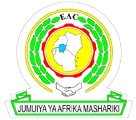Complaint
- Complaint number
- NTB-000-603
- NTB Type
- 2.9. Issues related to transit fees
- Complaint
- From May 2013 the government of Mozambique introduced a single window entry customs system which requires transiting goods should pay a transit bond on crossing Mozambique. However since implementation to date the system is not working properly as trucks are forced to stop at borders viz:- Zobue, Cuchamano, Miranje just to mention a few for long periods in some instances x3 weeks to a month before they can be cleared to cross. This is mainly because Mozambique bond is different to the rest of the regions bond sytems. In Mozambique they require a bond agent to post the equivalent amount of bond being applied for in cash value, i.e. if bond is USD1,000,000 then the agent has to hand over USD1,000,000 in cash either to govt or customs for the bond to be established. This has resulted in few people able to afford bond as such only a few agents are available and at the same time goods requiring their services are just huge volumes with huge values that the bonds are not sufficient to carter for all transiters. This is making exporters or importers waste a lot of time at the border thereby missing delivery schedules. At the same time transporters are raising freight charges as they are only able to make a single trip in a month than they used to do previously, almost x4 minimum. This is causing rising costs of goods in neighbouring countries and also missed opportunities for private traders like our company.
- Status note
-
On 11th September 2013, Mozambique Focal Point reported that the alleged NTB´s related to the transit procedures in Mozambique, were removed, through the approval of Ministerial Diploma nº 116/2013 of 8th of August, which approves the Norms and Specific Principles to be taken into account in the implementation of Customs Transit of Goods. This Ministerial Diploma repeals the Ministerial Diploma nº 307/2012, of 15 of November.
Pursuance to reaching a common understanding on this matter, FCFASA members in Malawi reported that CAFAAM Executive Committee Members together with Malawi Revenue Authority, Ministry of Trade and Ministry of Transport and Executives from Malawi, travelled to Cuchamano and Nyamapanda to appreciate the various challenges (delays, costs, etc.) which came about as a result of the new transit procedures introduced in Mozambique in April 2013. The delegation met with Mozambique customs , Beira , Port authorities and had an opportunity to interact with Mozambican Clearing and Forwarding Agents and some Malawian drivers during the launch of the Diploma nº 116/2013 of 8th of August.
The delegation reported:-
1. It was agreed that the new Transit Bond Procedures in Mozambique are in line with international practice and appreciated the fact that in the absence of these procedures, a lot of traders were smuggling goods into Mozambique under the guise of “transit cargo”.
2. Mozambican Clearing agents had been given adequate notice to put in place the required bond guarantees although they were not ready by implementation date.
3. The general consensus was that the conditions (e.g. the required collateral) set up by banks, insurance companies and the authorities themselves for setting up the transit bond guarantees were too tough to be met by transporters and forwarding agents.
4. To this end, the Mozambican Government’s had exempted some products (tobacco, tea, sugar, cotton, etc.) from monetary bonding and reduced bond values from 100% on containerized cargo to 20% or 35% on break-bulk cargo. This measure would reduce pressure on the available bond levels for other cargo not exempted.
5. That there was need to license more “Despachantes” to speed up clearance procedures or alternatively, allow forwarding agents to be doing own customs clearing of cargo which they are moving.
6. There was need for Station Managers at the various borders to be taking stock of trucks available at the borders every day and talk to drivers who have stayed at the border for more than a day to encourage them to proceed with their journey so as to minimise the prevalent corrupt practices by some customs officers, guards, clearing agent.
7. A proposal to set up a “Help Desk” at the borders to achieve transparency and quarterly meetings between the various players at senior level.
8. Joint border training sessions between customs and other authorities and clearing & forwarding agents to be enhanced.
9.That various customs authorities establish a deliberate policy for Accrediting Clearing agents based on an exhaustive Risk assessment of each one of the agents and track record in order to “smoke out” fraudulent clearing and forwarding agents who cheat importers or assist them with smuggling practices,.
10. That Mozambican authorities should endeavor to translate and display the various rules and regulations into English to enable none Portuguese speaking people to understand the applicable regulations.
11.Mozambique customs advised that:
a. Clearing Agent need to quickly do a Supplementary Entry if there are any changes to a declaration (e.g. amending border of exit, amending values or quantity of goods, etc.) to avoid truck delays at the border or bond acquittals being blocked.
b. Once CORRECT documents are lodged and payment effected, their processing time is up to 3 hours only.
c. They would as far as possible, be rotating their staff to avoid corruption if they familiarize themselves too much to one border station. - Progress update note
-
On 11th September 2013, Mozambique Focal Point reported that the alleged NTB´s related to the transit procedures in Mozambique, were removed, through the approval of Ministerial Diploma nº 116/2013 of 8th of August, which approves the Norms and Specific Principles to be taken into account in the implementation of Customs Transit of Goods. This Ministerial Diploma repeals the Ministerial Diploma nº 307/2012, of 15 of November.
The important aspects of the Ministerial Diploma nº 116/2013 are:
• Setting of global bonds at 35% of duties and other taxes, keeping at 100% the payment of isolated bonds. In case of application of fiscal caution, the global bond is 20%;
• Increase of 500% of the list of goods free from obligations of bonds;
• Introduction of warehouse customs transit operator as beneficiary of the regime;
• Fixing of 180 days as the deadline for keeping goods in customs transit regime warehouses;
• Fixing the maximum limit of shipment to 40 for each customs transit declaration;
• Adoption of cautious measures to tackle the importation of covert new and used vehicles as they are to be shipped in proper vehicles otherwise stated in the norms and regulations;
• Publicize the project for the establishment of Inland Cargo Terminal at Inchope region.
Pursuance to reaching a common understanding on this matter, FCFASA members in Malawi reported that some CAFAAM Executive Committee Members together with Malawi Revenue Authority, Ministry of Trade and Ministry of Transport and Executives from Malawi, travelled to Cuchamano and Nyamapanda to appreciate the various challenges (delays, costs, etc.) which came about as a result of the new transit procedures introduced in Mozambique in April 2013. The delegation proceeded to Beira for meetings with Mozambique customs and Cornelder as Port authorities and also had an opportunity to interact with some Mozambican Clearing and Forwarding Agents and some Malawian drivers during the launch of the Diploma nº 116/2013 of 8th of August.
In this three day mission to the Mozambique borders and ports, the following key observations/agreements were made:-
1.All customs authorities the world over have a responsibility of Collecting Revenues for the State, facilitating Trade and Protecting the Safety of the People and their country. It was therefore agreed that the new Transit Bond Procedures in Mozambique are a welcome development having appreciated the fact that in the absence of these procedures, a lot of traders were smuggling goods into Mozambique under the guise of “transit cargo”.
2.It was noted that the Mozambican Clearing agents had been given adequate notice to put in place the required bond guarantees although they were not ready by implementation date. The victim to these agent’s unpreparedness were the Malawian citizens and businesses who suffered the consequences by way of (a) delayed delivery of merchandise, raw materials and or project equipment (b) high landed cost of various goods due to uncalled for additional unofficial transit payments (c) loss of production due to delayed receipt of raw materials or factory spares (d) high transport costs due to diversions to longer routing via Zambia for cargo from the Southern Corridor, (e) delayed realization of forex due to delays in processing of export transit approvals of the goods for shipping through Mozambique ports, etc.
3.The general consensus was that the conditions (e.g. the required collateral) set up by banks, insurance companies and the authorities themselves for setting up the transit bond guarantees were too tough to be met by transporters and forwarding agents.
4.To this end, the Mozambican Government’s positive consideration in exempting some products (tobacco, tea, sugar, cotton, etc.) from monetary bonding and the reduction of bond values from 100% on containerized cargo to 20% or 35% on break-bulk cargo was highly appreciated as this would reduce the pressure on the available bond levels for other cargo not exempted. Stakeholders noted that pigeon peas and other legumes were not included and therefore requested the Mozambique authorities to include them.
5.That there was need to license more “Despachantes” to speed up clearance procedures or alternatively, allow forwarding agents to be doing own customs clearing of cargo which they are moving.
6.There was need for Station Managers at the various borders to be taking stock of trucks available at the borders every day and talk to drivers who have stayed at the border for more than a day to encourage them to proceed with their journey. This way, prevalent corrupt practices by some customs officers, guards, clearing agents, etc would be exposed if the managers open up and talk directly to the drivers or travelling public.
7.A proposed to set up a “Help Desk” at the borders to achieve transparency and quarterly meetings between the various players at senior level was made.
8.Joint border training sessions between customs and other authorities and clearing & forwarding agents to be enhanced.
9.That , the various customs authorities must have a deliberate policy for Accrediting Clearing agents taking cognizance of their track record over and above undertaking an exhaustive Risk assessment of each one of the agents before registration in order to “smoke out” fraudulent clearing and forwarding agents who cheat importers or assist them with smuggling practices,.
10.Recommended surprise visits by senior customs officials to the borders to keep corrupt practices under constant check.
11.Recommended that Mozambican authorities should endeavor to translate and display the various rules and regulations into English to enable none Portuguese speaking people to understand the applicable regulations.
12.Mozambique customs advised that:
a.Clearing Agent need to quickly do a Supplementary Entry if there are any changes to a declaration (e.g. amending border of exit, amending values or quantity of goods, etc.) to avoid truck delays at the border or bond acquittals being blocked.
b.Once CORRECT documents are lodged and payment effected, their processing time is up to 3 hours only.
c.They would as far as possible, be rotating their staff to avoid corruption if they familiarize themselves too much to one border station.
13.The meeting mad recommendations to clearing agents that would facilitate smooth and easy processing of transit documents at the Mozambique borders under the decree. - Policy or regulatory NTB
- No
- Location
- Mozambique: Delegação Aduaneira de Zobwe (Border post)
- Reporting Country or Region
- Malawi
- Country specific trade issue
- No
- Date of incident
- 2013-05-01
- Status
- Resolved
- Date of resolution
- 2013-09-13
- Product Description
-
All products
- Total value
- 40.00
- Date reported
- 2013-08-22 14:46
- Modified
- 2013-09-26 12:36
Messages
No messages



 English
English Français
Français
